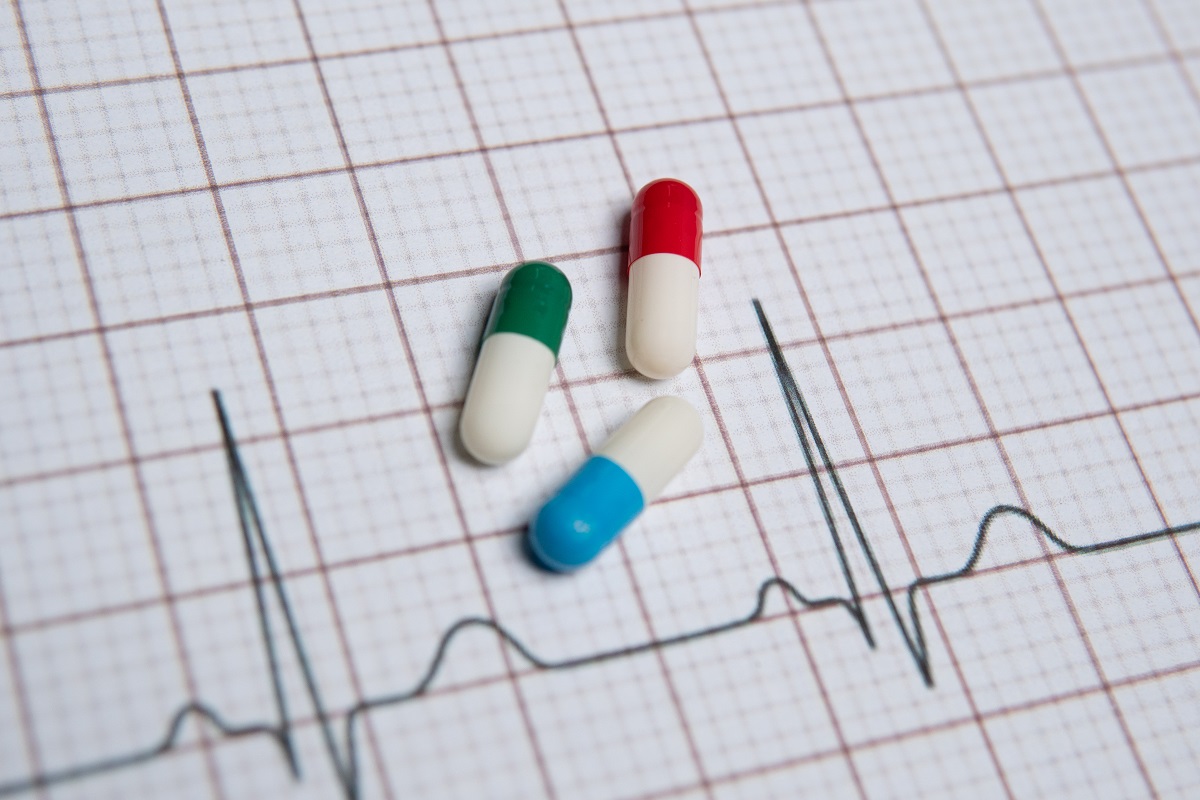A health condition in which swelling and irritation of the saclike tissues around the heart happens is called pericarditis. This heart’s tissue is called pericardium. When this disease occurs it provokes sharp chest pain. Such chest pain is provoked by inflamed layers of the pericardium that begin to rub against each other. In most cases, this condition is mild and does not require treatment. In case a person experiences a severe form of pericarditis, treatment includes surgery and medicines usually. However, early diagnosis and treatment can help to reduce the risk of permanent damage and life-long complications.
Symptoms
While the most common pericarditis symptom is chest pain, other people may experience dull, achy, or pressure along with chest pain. In most cases, the pain occurs behind the breastbone or on the left side of the chest. The pain usually:
- Goes to the left shoulder and neck
- Worsens when lying down, taking a deep breath, or coughing
- Improves when you are sitting up or leaning forward
Check below some additional pericarditis symptoms:
- Cough
- Extreme tiredness (fatigue)
- Low-grade fever
- Legs or feet swelling
- Fast heart rate (palpitations)
- Breathing problems, especially when you are lying down
- Abdominal swelling
Previous symptoms appear depending on the pericarditis type you experience. The kind of pericarditis you experience depends on how much the symptoms last and their pattern. For example:
- Acute pericarditis – In such cases, the symptoms appear suddenly and last roughly 1 month. That’s why it is challenging to make the difference between this pericarditis type and pain caused by a myocardial infarction.
- Recurrent pericarditis – The symptoms happen 4-6 weeks after acute pericarditis. However, people often do not notice any symptoms in between.
- Incessant pericarditis – This type of pericarditis provokes symptoms lasting about 4-6 weeks but no more than 3 months.
- Chronic constrictive pericarditis – Those who suffer from pericarditis type experience the symptoms longer. They usually last more than 3 months.
In case you experience recurrent chest pain, it is advised to visit a doctor immediately.
Causes
It may be challenging to identify the exact pericarditis cause and sometimes it cannot be found. In such cases, it is known as idiopathic pericarditis. Check below some pericarditis causes:
- Lupus
- Rheumatoid arthritis
- Long-term health conditions (including cancer, kidney failure, and others)
- Medications such as Phenytoin (used to treat seizures), Procainamide (used for irregular heartbeats), and others.
- Injury to the chest or heart
- Viral infections
- Dressler syndrome (it is a condition in which the immune system responds after heart damage, attack, or surgery)
What Are The Possible Complications of Pericarditis?
Early diagnosis and proper treatment can help to prevent or even avoid complications. Check below some of them:
- Pericardial effusion – In such cases, a fluid buildup around the heart happens. However, once this occurs it may lead to other heart complications.
- Constrictive pericarditis – This complication causes scarring and thickening of the heart lining. If you experience this complication for long periods, it may lead to permanent pericardium damage. The most common symptoms of constrictive pericarditis are severe abdomen swelling and trouble breathing.
- Cardiac tamponade – Those who experience this complication will notice pressure on the heart caused by fluid buildup. It is considered a medical emergency because it prevents the heart from filling properly. Hypotension is one of the symptoms of cardiac tamponade and if the patient does not get the treatment right away it may lead even to death.
Prevention
Despite there are no ways to prevent pericarditis, the following tips can help you to prevent inflammation of the heart. For example:
- Regularly wash your hands with water and soap because it will help to reduce the spreading of the infections.
- You should also get the vaccines for rubella, COVID-19, and influenza. Previous conditions can lead to myocarditis (it happens when the heart muscle becomes inflamed). Therefore, in many cases, pericarditis occurs with myocarditis at the same time.
- Do not get in direct contact with other people who suffer from viral or flu-like conditions.
Diagnosis
First, physicians will ask you questions about symptoms and medical history. Thereafter, they perform several tests that help to confirm the condition. They can also listen to your heart using a stethoscope. Check below some tests usually done to diagnose pericarditis:
- Blood tests – It helps to check for heart attack, inflammation, and infection.
- Electrocardiogram (ECG or EKG) – This is a painless test that helps to measure the electric signals in the heart. Therefore, it shows the beating of your heart.
- Chest X-ray – This test produces detailed images of the heart, which helps to determine the size and shape of the heart muscle.
- Echocardiogram – This test involves sound waves to make images of the moving heart. After this test, physicians can see how the heart is pumping blood.
- Cardiac CT (computed tomography) scan – This test is usually performed if your doctor suspects you have constrictive pericarditis.
- Cardiac MRI (magnetic resonance imaging) – MRI scans can show inflammation and other changes that occur in the heart and tissues that surround it.
Treatment
Commonly, the treatment is different among patients. It depends on the severity of the symptoms, how long you experience the condition, and other factors. However, physicians usually prescribe medicines and/or surgery (for more severe cases).
Medicines
Check the most common medicines prescribed by the doctors for pericarditis below:
- Painkillers – These medications are recommended by physicians to lessen the pain caused by this condition. Most of them are sold without prescription. For example Aspirin, Ibuprofen, and others. In any case, you should not use them without a doctor’s approval.
- Colchicine – This medication is used to treat inflammation that happens anywhere in the body. However, doctors usually recommend it when pericarditis occurs suddenly or to prevent the recurrence of the symptoms. In addition, do not use this medicine if you have kidney or liver disease.
- Corticosteroids – This group of medications is used to treat inflammation. In most cases, physicians advise Prednisone. However, they recommend this group of medicines when others do not work for you or the symptoms return.
- Immunosuppressants – These drugs are used to reduce inflammation that is provoked by the immune system. For instance, if you have pericarditis due to rheumatoid arthritis, doctors will prescribe immunosuppressants.
- Immunomodulators – These are used to modify the immune system’s activity, which helps to control inflammation. Mostly, physicians prescribe Interleukin 1 blockers.
Surgery and Other Treatments
If the fluid buildup around the heart occurs, you may need additional procedures along with medications to drain the fluid. Check below some examples:
- Pericardiectomy – This is a procedure in which surgeons remove the pericardium. This treatment option is usually recommended for people with constrictive pericarditis.
- Pericardiocentesis – In such cases, doctors use a small needle or a special tube (catheter) to remove the excess fluid from the pericardium.
In addition, if you experience pericarditis due to bacterial infection, treatment will include drainage of the fluid from the pericardium and antibiotics.
Frequently Asked Questions
Can pericarditis disappear on its own?
You may not need treatment if experience a mild form of pericarditis. Any other pericarditis types require treatment. In most cases, people recover from this medical condition within 3 months.
What is the most common cause of pericarditis?
One of the most common causes that lead to pericarditis is viral infections (including chest colds, pneumonia, and others). Consult with your healthcare provider for more details.
What are the most common pericarditis complications?
- Trouble breathing
- Abdominal pain and swelling
- Lightheadedness
- Palpitations
- Extreme tiredness
- Nausea
- Vomiting
- Fever
- Chest pain
If you experience any of the previous complications, immediately contact your doctor. Ask your healthcare professional if you have additional questions.




